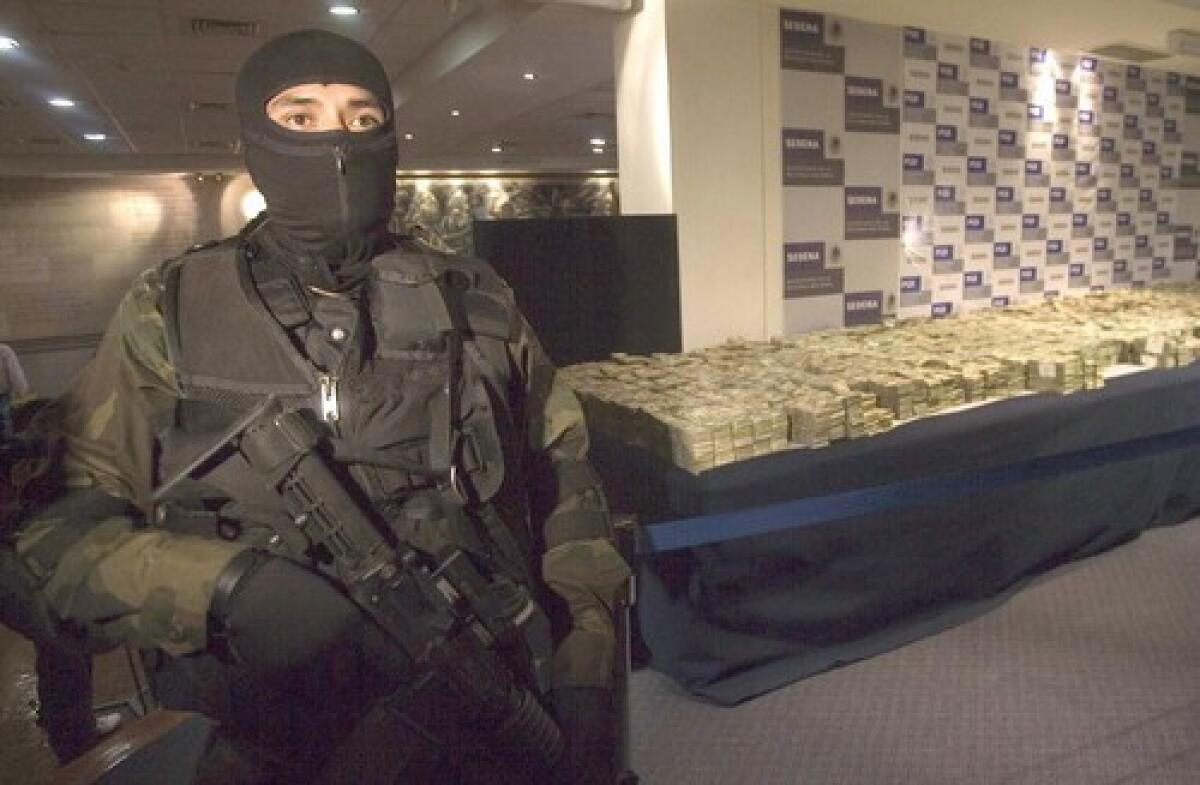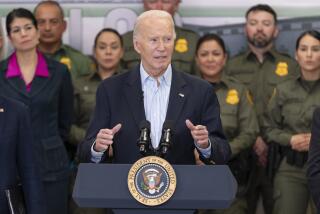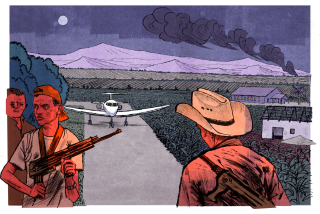Culiacan, Mexico, feels the pain of a drug-induced recession

A ruby-red Hummer glistened idly on the quiet showroom floor, its only visitor a janitor polishing its doors and bumpers. The dealership had no customers.
Sales are down here and at scores of businesses across this western Mexico city. But this recession has nothing to do with stock-index dives on Wall Street, the weak peso or collapsing banks. This is a narco-recession.
When army troops rolled into Culiacan this year as part of a massive government campaign to fight drug traffickers, the big players went underground. From the looks of things, they took their free-flowing dollars with them.
“No one wants to be ostentatious right now,” said Raul Gustavo Piña Ibarra, manager of the Hummer and Cadillac dealership.
That’s bad news for a city that is the birthplace of Mexico’s multibillion-dollar illegal drug trade and the embodiment of its every excess.
The hardest-hit enterprises in this recession are the purveyors of the typical narco’s favorite toys and pursuits: Flight schools. Yacht and luxury-car dealerships. Dollar-changers. Love-in-the-afternoon motels. Even the Jesus Malverde temple.
A mustachioed Robin Hood figure in Mexican folklore, Malverde is considered the patron saint of the thousands of people who dedicate themselves to smuggling and merchandising cocaine, marijuana and methamphetamine.
In boom times, admirers and believers swarm the shrine erected here in Malverde’s honor. They paper the building’s walls with photographs of themselves (sometimes with their guns, multiple cellphones and snakeskin cowboy boots showing) in an effort to seek his blessing. They hang plaques praying the saint will protect them on their “journey” from Culiacan to San Diego or Chicago -- their smuggling routes.
The temple was deserted during a recent visit save for Doña Tere, a caretaker, and a couple of forlorn souvenir salesmen who hawk candles, Malverde key chains and painted busts in all sizes of the not quite Vatican-approved saint.
Doña Tere, bobbing relentlessly in a rocking chair, said business and visitors had dropped by about half over the last few months. “It’s way down here, like everywhere around here these days,” she said.
Across town, hard times have hit the itinerant money-changers in the city’s historic district, where rows of stores cater to low-level traffickers who come down from the mountains to stock up on groceries, clothing, tools and generators.
“We can’t stand the guachos,” said a fat man with a fatter gold watch, using a slang term for the soldiers. His eyes darted back and forth on Benito Juarez Street in search of a potential customer: a car that might slow, its passengers with dollars to sell. There were none.
“At least the narcos gave us work,” he said.
Considering it’s the capital of a state, Sinaloa, whose main legal source of income is the tomato, Culiacan, has an awful lot of mansions, casinos, sushi restaurants and spas. That’s because as much as 20% of Sinaloa’s gross domestic product is based on drug trafficking and the chain of production, transport and intelligence involved, according to Guillermo Ibarra, an economist and professor at the Autonomous University of Sinaloa.
The government’s offensive against traffickers has had mixed results. Violence has soared in many parts of the country. In places like Sinaloa, the gains seem temporary. Authorities confiscate a fleet of planes belonging to drug runners, and days later gunmen steal them back.
For now, at least, Sinaloa’s drug lords are having more trouble converting their cash into big-ticket items such as houses and resorts, or depositing it in banks. Instead, they move the money to other countries. Or they simply hide it in safe houses, hoping they can outlast the pressure and launder it later; a recent spike in the number of multimillion-dollar caches found during army and police raids seems to support this assessment.
“Narcos are beginning to hide their money in mattresses like little grannies,” Ibarra said.
At the opposite end of the economy, Ibarra said, an estimated 50,000 Sinaloa families keep their heads above water thanks to handouts or work linked to the drug trade, or through remittances sent from relatives living in the U.S. The narco-recession, combined with a drop in remittances because of hard times up north, now threatens to plunge those families into poverty, Ibarra said.
Discounts and enticements such as free drinks are now being offered at scores of motels that dot the highways leading in and out of Culiacan. The motels are the venues for trysts between drug traffickers and their mistresses, but business there is also in decline.
Some of these establishments are elaborate, with turrets and high walls and names that evoke Far Eastern pleasure palaces. They were briefly shut down by the army when it first arrived, over suspicions that they were involved in money-laundering schemes.
At the Paris Motel, whose roof sprouts a replica of the Eiffel Tower, the attendant in charge said army patrols had made it uncomfortable for customers. “This is about privacy,” he noted.
The motel’s white-stucco front gates were adorned with a big black bow in memory of the owner, who was shot to death by gunmen this month in what authorities said was a battle between rival drug gangs.
Jose Luis Aispuro Calderon, 38, president of the Culiacan Chamber of Commerce, said Sinaloa began feeling the effects of its recession long before other parts of the world. Army pressure has created a climate of uncertainty that makes people fear for their jobs. Among the wealthy, it has dampened enthusiasm for home purchases, which in turn triggers a slowdown in construction.
Even worse, said Aispuro, the big drug traffickers have left the lower-echelon operators in Culiacan with no source of income.
Aispuro, who runs a family paint business, believes that has led to a surge in crime, including armed robberies of banks and stores. One pharmacy chain reported 20 assaults in a recent month.
“What worries us now,” Aispuro said, “is what comes next.”
Wilkinson is a Times staff writer.
More to Read
Start your day right
Sign up for Essential California for news, features and recommendations from the L.A. Times and beyond in your inbox six days a week.
You may occasionally receive promotional content from the Los Angeles Times.







